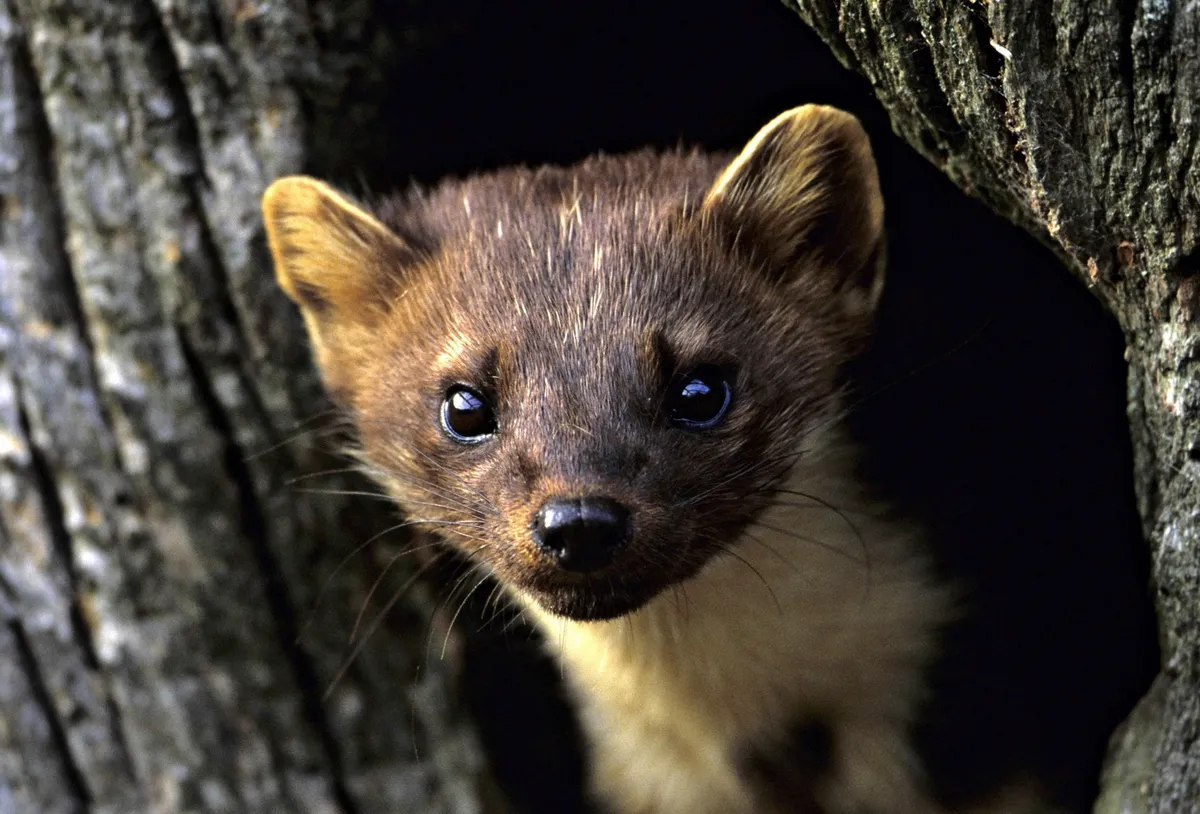Extensive hunting, along with the loss of woodlands, has brought an animal that was once a common sight in England to the brink of extinction. Historically widespread across the UK, pine martens have been pushed back to the most remote parts of the country, with their last stronghold being the northwest Highlands of Scotland.
But now, thanks to ongoing conservation work, the rare pine marten is starting to enjoy a comeback.
Gloucestershire Wildlife Trust, Forestry England, Vincent Wildlife Trust, and Forest Research have joined forces to help the pine marten’s recovery, giving the animal a chance to establish themselves in England once more.
Between August and September, 18 pine martens were successfully relocated from Scotland to Gloucestershire. They were fitted with tracking collars before being released into the Forest of Dean — an area covering 110 square kilometres of woodland, including ancient woodland — where they will be closely monitored.
The species’ reintroduction to the Forest of Dean is strategic. Between 2015 and 2017, 51 pine martens were relocated from Scotland to Wales by Vincent Wildlife Trust. Following the release, their population is now well established.
It is hoped that, over the next two years, the Forest of Dean pine martens will link up with the Welsh population, creating a new stronghold to ensure the species’ survival.
“We are in a biodiversity emergency and conserving our remaining wildlife is not enough — we must also take action to support nature’s recovery,” said Dr Gareth Parry, Director of Conservation at Gloucestershire Wildlife Trust.

“We’re working with partners to establish a Nature Recovery Network across the country and bringing back native species, such as the pine marten, which play a vital role in ecosystem functioning, is an important part of this work.”
Although it is hoped that England’s pine marten population will grow successfully, they are unlikely to be commonly seen by the public as they are by nature secretive, even preferring to avoid the company of one another. But the presence of these elusive mustelids could bring many benefits to the local environment, including working toward healthier woodlands by restoring their natural ecosystem, and on a wider scale, improve the country’s biodiversity.
“As native omnivores, pine martens play a vital role in the delicate balance of woodland ecosystems,” explains Rebecca Wilson, Forestry England’s Planning and Environment Manager in West England.
“Living at low densities in the landscape, they forage on fruit, fungi, and a range of prey including the grey squirrel, a non-native species which is having a detrimental impact of broadleaf woodland throughout England.”
Pine martens are protected under the Wildlife and Countryside Act (1981). This, together with the support of the local communities, could help to ensure that pine martens are back for good.